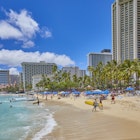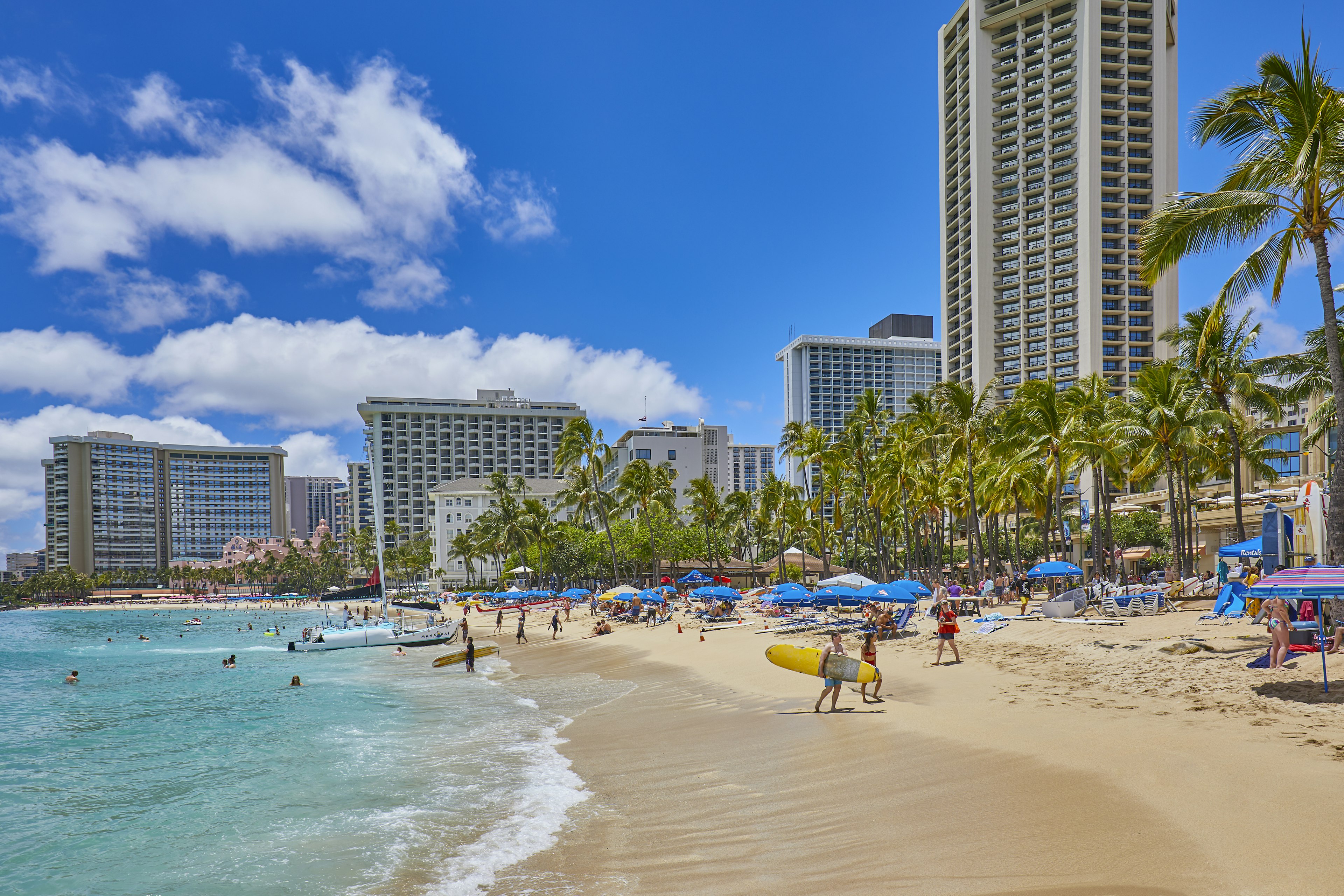
Dec 17, 2021 • 2 min read

Apr 28, 2022 • 4 min read

Airbnbs and other short-term rentals in residential areas of O'ahu can only be booked for a minimum of 90 days under a new law © Getty Images
Honolulu mayor Rick Blangiardi has signed a bill into law that requires a 90-day minimum stay for people booking Airbnbs and other short-term rental accommodation outside resort areas in O'ahu.
The bill, which increases the minimum bookings on short-term rentals in residential areas from 30 to 90 days, was signed on Wednesday (April 27) and the law will come into effect on October 23.
"This bill is about getting our neighborhoods back, protecting local communities and preserving our natural resources for decades to come," Blangiardi tweeted.
For travelers, this means if you're visiting O'ahu and want to live like a local by renting out an apartment or house in a residential neighborhood, you may have to rethink your plan and go down the traditional route of booking a hotel room instead.
For a destination hard-hit by problems associated with overtourism, including the rising cost of rent, those in favor of the bill hope the new rules will increase housing supply for long-term rentals in an island where apartments are hard to come by. Advocates also hope it will reduce the number of transient occupants in residential areas.
Waikiki and beyond: the best beaches around Honolulu

In an interview with Honolulu Civil Beat, Director of Honolulu's Department of Planning and Permitting (DPP), Dean Uchida, said officials want to restore "some sanity" back into residential neighborhoods.
"Through the pandemic, we saw what neighborhoods became after keeping out all these vacation rentals," Uchida said. "I think residents really appreciated that."
How to visit Hawaii without totally destroying it
While short-term rentals under 90 days or three months will be banned in residential areas, they will still be permitted in resort areas such as Waikiki, near Ko Olina, and Turtle Bay, and specific areas surrounding them.
In a statement, local housing group Keep It Kailua, said it supports the bill, claiming that short-term rentals have had a disruptive impact on residential neighborhoods and exacerbate the current housing crisis.
"Not only is there a shortage of homes for local families, but the cost of residential-zoned homes and long-term rentals is simply unaffordable for most residents. Vacation rentals in residential zones increase the number of tourists who visit O'ahu to unsustainable levels and promote tourism sprawl," it argued.

Not everyone agrees that this is a step in the right direction. The overall feeling of those who oppose the bill is that it pushes out those who rely on short-term rentals for work or essential reasons.
Robin Erb, Regional Director for World Surf League Hawaii, said a lack of affordable short-term rental options could have a negative impact on the local surfing industry, particularly during competition times when international surfers and judges arrive in town for quick stays . "90 days is simply unworkable for our surfers and our workers," she told Hawaii News Now.
In a written testimony to the Council, the League pointed out that "there is not a single 90-day period within the North Shore surf calendar that justifies any traveling surfer or worker staying 90 days on O'ahu" and claimed that many surfers could struggle to afford the typically higher cost of accommodation in resort areas they're now being directed to.
Accessible Hawaii: the best things to do for travelers with disabilities and additional needs
In a statement supplied to Lonely Planet, Airbnb said it encourages the Council to make exceptions for tenants such as medical workers, military personnel and nonprofits who require the use of short-term rentals in O'ahu, highlighting that since the onset of the pandemic healthcare professionals, first responders and patients have all required temporary accommodations.
"Similarly, disaster relief workers and displaced residents relied on our platform for medium-term accommodations in the wake of natural disasters, including the 2018 Kilauea volcano eruption on the Big Island, during which Airbnb Hosts opened their homes free of charge for these individuals, Toral Patel, Airbnb Hawaii's Public Policy's manager said.
Despite some opposition on the ground, the council voted 8-1 in favor of the bill on April 13, saying it finds that that any economic benefits of opening up residential areas to tourism are far outweighed by the negative impacts to neighborhoods and local residents.
The law will kick in on October 23, 2022.
You might also like:
This Hawaiian island plans for fewer visitors as it pushes for sustainable tourism
What you need to know before visiting Hawaii


Dec 17, 2021 • 2 min read





Sep 5, 2024 • 5 min read


